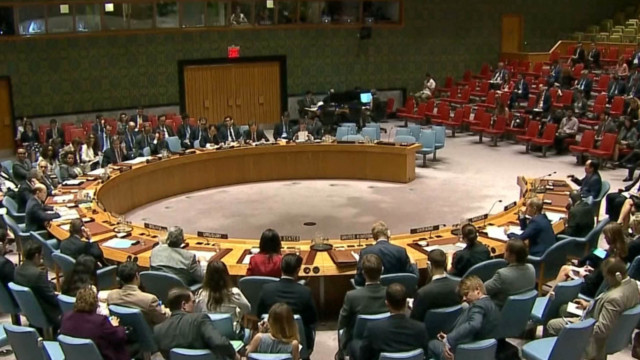There was strong criticism of the Democratic People’s Republic of Korea for its ICBM test at an emergency meeting of the U.N. Security Council. China’s ambassador said the test flouted “the will of the entire international community.”
The U.S. went further, repeating a threat to take unilateral military action.
CGTN’s Liling Tan reports from New York.
Follow Liling Tan on Twitter @LilingTan
“China finds this launching unacceptable. We strongly urge the DPRK to strictly abide by the resolutions of the Security Council and to put a stop to any rhetoric and action that might further exacerbate the tension on the peninsula,” Chinese Ambassador to the UN, Liu Jieyi said.
Council members agreed. Even so, they couldn’t agree on how to make that happen. China and Russia backed a compromise.
“We call upon the DPRK as a voluntary, political decision to declare a moratorium on the testing of nuclear explosive devices and the testing of ballistic missiles, though the U.S. and the Korean Republic at the same time should refrain from conducting full-scale joint training exercises,” Vladimir Safronkov, Russian Deputy Ambassador to the U.N. said.
The U.S. has already rejected this idea. Meanwhile, U.S. Ambassador Nikki Haley said Washington is growing impatient with diplomacy.
“Much of the burden of enforcing UN sanctions rests with China. Ninety percent of trade with North Korea is from China. We will work with China. We will work with any and every country that believes in peace. But we will not repeat the inadequate approaches of the past that have brought us to this dark day,” Haley said.
In February, China banned coal imports from the DPRK, which has accounts for about 40 percent of all DPRK exports to China.
Many member states said more needs to be done to implement existing Security Council resolutions. The U.S. and the UK want to add more targets to the sanctions list, or impose new sanctions, or do both.
Regardless, six rounds of sanctions since 2006 have not only failed to prevent Pyongyang from testing nuclear weapons and developing long-range missiles, but havem also failed to prevent the DPRK’s progress with both technologies.
 CGTN America
CGTN America
